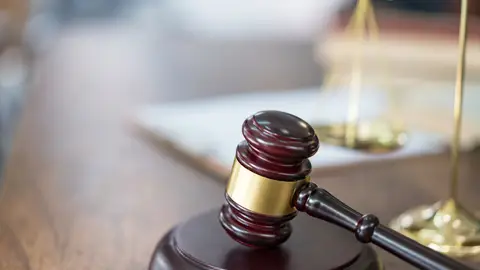Appeals Court Rules In Records Case Involving 1946 Racist Multiple Murders

A federal appeals court has just reversed a lower court’s ruling regarding grand jury evidence in a 1946 mass lynching case in rural Georgia.
The U.S. Court of Appeals in Atlanta ruled Friday that federal judges are not authorized to unseal any records outside of specific rules covering grand jury secrecy, The New York Times reported.
The initial ruling had been for years sought after by civil rights activists who wanted closure in the murders of two Black couples by a group of white men in Walton, Ga., which have gone unsolved. The killings, which are seen as one of the last mass lynchings in American history, came to be known as the Moore’s Ford lynchings.
The victims, Roger and Dorothy Malcom and George and Mae Murray Dorsey, were taken from their automobile at gunpoint on July 25, 1946, tied up and then shot 60 times at close range. The incident was so gruesome that it inspired a teenaged Martin Luther King Jr., to write to the then-Atlanta Constitution about the racial terrorism constantly used to assault African Americans.
“I often find when decent treatment for the Negro is urged, a certain class of people hurry to raise the scarecrow of social mingling and intermarriage,” wrote King, who was 17 at the time and a student at Morehouse College. “These questions have nothing to do with the case. And most people who kick up this kind of dust know that it is simple dust to obscure the real question of rights and opportunities.”
A grand jury listened to testimony for 16 days in the case, but none of the group of shooters were ever held responsible and nobody ever went to trial. Grand juries are led by a prosecutor instead of a judge and the records are typically sealed.
The FBI had reopened its investigation, but closed it in 2017. Anthony Pitch, an author and historian, wanted access to the grand jury transcripts and U.S. District Judge Marc Treatwell granted him access citing that an exception could be made, but the full 11th Circuit Court changed that in an 8-4 vote.
“The long-established policy of upholding the secrecy of the grand jury helps to protect the innocent accused from facing unfounded charges, encourages full and frank testimony on the part of witnesses and prevents interference with the grand jury’s deliberations,” Senior Judge Gerald Tjoflat wrote in the majority opinion, noting that the legal exception could not be made in this case.
Activists have wanted to know what happened in the case for generations. Pitch died last year and his lawyer, Joseph J. Bell Jr. has continued the fight for the records along with Pitch’s wife, Marion.
“I think history demands a full disclosure of the truth surrounding this important civil rights case,” Bell told the Times. “Why were 2,790 people interviewed? One hundred and six witnesses testified before a grand jury for 16 days and no one has been brought to justice?”
Bell has said that he intends to ask the U.S. Supreme Court to hear the case on behalf of Marion Pitch and the victims. “I may have been knocked down, but I’m not knocked out,” he told the Atlanta Journal-Constitution on Monday.





